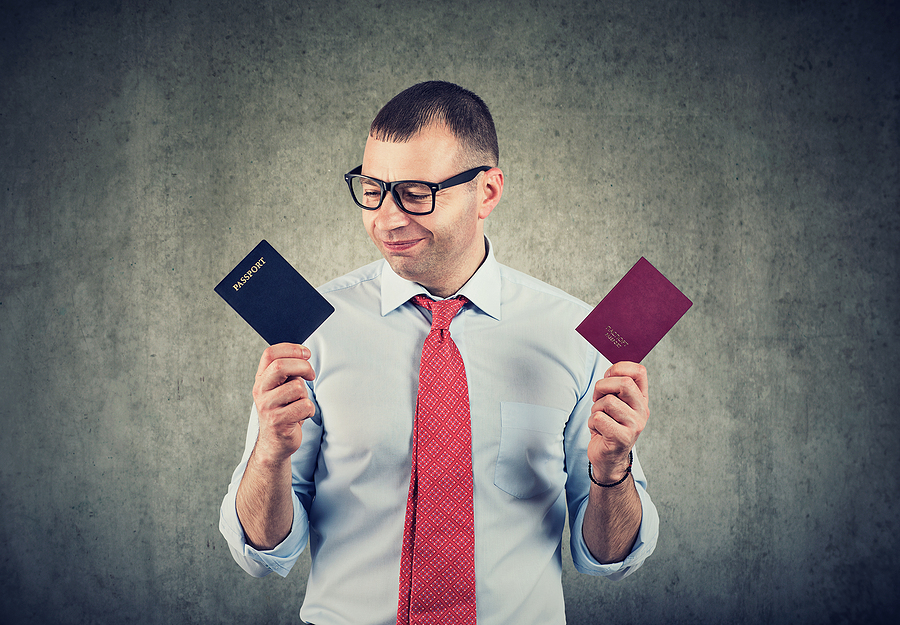What is dual citizenship?
Multiple citizenship or dual citizenship in Australia is where an individual has the status of holding two citizenship, one Australian and another that allows its citizens to hold dual citizenship with Australia. The dual citizen is expected to follow the rules of both countries depending on where they are living at the time.
Does Australia Allow Dual Citizenship?
Yes, Australia allows dual citizenship. Dual citizenship refers to the ability of an individual to hold citizenship of two countries simultaneously. Australia recognizes and permits its citizens to have dual citizenship, enabling individuals to acquire Australian citizenship while retaining their existing citizenship of another country.
How to file an application in Australia for dual citizenship
You can apply as long as you fulfill the requirements below:
You are entitled to be an Australian dual citizen as long as you:
- are already an Australian citizen;
- possess citizenship of a 2nd country which allows you to maintain your Australian citizenship;
- remain as another country’s citizen and then become a citizen of Australia.
Australia does allow an individual to possess dual citizenship but a few countries don’t. So, you may have dual citizenship in Australia if the 2nd country also allows dual citizenship. Both two countries need to agree to dual citizenship. From the 4th of April 2002, all restrictions were removed from Australia so that Australians could hold other citizenships which meant dual citizenship was from that date quite legal.
Which countries allow dual citizenship in Australia?
The following countries permit dual citizenship with any country, including Australia:
- Bangladesh,
- Brazil,
- Canada,
- Colombia,
- Egypt,
- Fed. Rep. Yugoslavia,
- France,
- Hungary,
- Ireland,
- Israel,
- Italy,
- Jordan,
- Lebanon,
- Macedonia,
- Malta,
- Netherlands,
- New Zealand,
- Portugal,
- South Africa,
- Spain,
- Switzerland,
- Syria,
- Tonga,
- Turkey,
- The United Kingdom,
- The United States,
- Western Samoa.
Restrictions that come with dual citizenship in Australia
If you are a dual national as an Australian traveling to your second country of nationality, you need to know if you have to face any restrictions. For example, some countries require compulsory military service for their dual nationals. These include:
- Lebanon,
- Israel,
- Iran,
- Greece,
- Egypt.
If you do not undertake the military service required you are breaking the country’s law. You may be arrested and put in jail as you will be a defaulter (draft-dodger) Even if you are over the age for military service, you may still be charged for being a defaulter.
Health services
Some countries allow dual nationals to access their public healthcare service but this is not always the case.
Marriage and family issues
- An Australian marriage between an Australian and someone who holds another nationality may not have the marriage recognized in that other country
- An Australian in the second country could find that their marriage isn’t recognized so any children may be considered illegitimate
Underage marriages
Some Australian families may try to arrange a child’s marriage in their dual-citizen country where the marriageable age is less than in Australia. According to Australian law, the following applies:
- a child below the age of 16 can’t marry
- a child 16 or 17 years old needs a court order to marry which has been issued by an Australian court.
These laws are applicable to marriages that have taken place in Australia. If a child who lives in Australia below 18 years, marries overseas without obtaining a court order, Australia will not recognize that marriage.
Child custody
Dual nationality can affect a court decision about child custody.
As a dual citizen, Australia cannot help you in your second country in the following situations:
- it cannot provide consular assistance if the other government doesn’t recognize that you are an Australian;
- it cannot get you excluded from any compulsory military service if you have been called up;
- it cannot assist you to get out of trouble if you have been arrested or put in jail;
- it cannot provide any legal advice.
In conclusion, Australia is a country that allows dual citizenship, permitting individuals to hold citizenship in two countries simultaneously. Australians can maintain their Australian citizenship while also being citizens of another country. This unique aspect of Australian citizenship offers opportunities for global connections and experiences. However, it’s essential to navigate the complexities of dual citizenship carefully. To ensure effective communication and compliance with all requirements, it is advisable to hire professional translation services, especially when dealing with official documents and legal matters.
Disclaimer: This article is provided for your convenience and does not constitute legal advice. Readers should not take, or refrain from taking, actions based upon the content of this article. Prior results do not guarantee similar outcomes. Please seek professional legal advice.


















